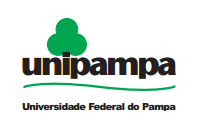Total number of credits: 30
Number of credits in mandatory components: 12
Number of credits in elective components: 12
Number of credits in Dissertation: 06
- The master’s student will be considered eligible for defense upon fulfilling the credit requirements and providing evidence of academic practices (participation in extension projects linked to the program; publication of articles in journals with Qualis ranking; publication of expanded abstracts in event proceedings; publication of abstracts in event proceedings; presentation of work at events).
Mandatory components shared among the faculty of both lines:
Theory and Practice in Language Teaching I – Teaching-learning processes. Conceptions of language, linguistics, and literature. Research methodologies. Analysis of teaching materials.
Theory and Practice in Language Teaching II – Teaching methodologies. Production of teaching materials. Assessment in teaching-learning processes.
Research Seminar I – Guidance for the development of a research pre-project applied to the classroom (15 pages). Proposal and implementation of a diagnostic lesson with the target audience. Proposal for a pilot intervention.
Research Seminar II – Production and dissemination of an experience report on the already developed pilot intervention proposal (first half of the semester). Presentation of preliminary results at one or more scientific events, including the production of an abstract, expanded abstract, and/or full paper. Development of the project (30 to 40 pages) and its qualification before a committee of three faculty members during the Research Socialization Seminar at the end of the semester.
Dissertation I – Generation and analysis of intervention research data in the classroom. Dissertation guidance and writing. Preparation and conduction of lectures and/or workshops and/or training sessions related to research themes for undergraduate students and/or teachers in Basic Education, linked to projects/programs/research groups of the master’s course or in partnership with other programs and/or institutions.
Dissertation II – Confirmed submission of one or more articles to Qualis-ranked journals (from A1 to C). Final writing of the dissertation and editing/sharing of the pedagogical/educational product through one or more means of dissemination (e.g., websites, blogs, online repositories, social networks, etc.). Dissertation defense.
Elective curriculum components linked to the Language Teaching and Learning (native and additional) line in multiple contexts:
Methodologies for Teaching/Learning Portuguese in Brazil (2 credits) – Syllabus: Presentation and discussion of different methodologies for teaching Portuguese, reconstructing the historical path of Portuguese language teaching and its relationship with linguistic theories.
Language Education (2 credits) – Syllabus: Topics related to language teaching, such as language concepts, multiliteracies, style and authorship, production and evaluation of teaching materials/textbooks, teacher training, learning assessment, linguistic analysis, etc.
Methodologies for Teaching/Learning Additional Languages in Brazil (2 credits) – Syllabus: Contemporary view of Applied Linguistics in teaching additional languages in the Brazilian context.
Language and Society (2 credits) – Syllabus: Study and discussion of the social uses and functions of language and their implications for teaching.
Cognition Applied to Teaching and Learning Processes (2 credits) – Syllabus: Directed readings and studies of texts related to the contributions of research in cognition and neuroscience to teaching and learning processes.
Topics in Additional Language Acquisition (2 credits) – Syllabus: Study of theories of additional language acquisition and their implications for teaching. Development of pedagogical practices aimed at teaching additional languages.
Media, Technologies, and Language Teaching (2 credits) – Syllabus: Technologies applied to language teaching. Digital literacy. Technologies in teacher training. Tools and digital media focused on language teaching.
Linguistic Analysis and Language Teaching (2 credits) – Syllabus: The concept of linguistic analysis and its relationship with language teaching. Descriptive approaches to linguistic phenomena and their connection to teaching. Discussion and reflection on traditional and innovative methods.
Guided Readings and Practices I (2 credits) – Syllabus: No predefined syllabus. Variable according to the focus of research and teaching activities developed by each class’s students.
Elective curriculum components linked to the Reading and Writing in School Practices line
Interculturality, Language, and Education (2 credits) – Syllabus: Study of knowledge production concerning the relationship between the concepts of interculturality, language, and education, focused on pedagogical work in regions with geographical borders and/or significant human mobility, in the light of current interdisciplinary theories.
Language and Educational Policies (2 credits) – Syllabus: Discussions on national and international language and educational policies and their impacts on the practices of different communities.
Discursive Theories and Teaching (2 credits) – Syllabus: Approach to recent studies on discursive and enunciative issues and their relationship with teaching.
Reading and Teaching Topics (2 credits) – Syllabus: Study of theories addressing reading and its implications in teaching. Development of pedagogical practices aimed at teaching both native and additional languages.
Writing and Teaching Topics (2 credits) – Syllabus: Study of theories addressing writing and its implications in teaching. Development of pedagogical practices aimed at teaching both native and additional languages.
Literary Studies Applied to Teaching I (2 credits) – Syllabus: Study of the concepts of literature and literary language in the light of contemporary theoretical assumptions; development of proposals for teaching literature in basic education based on the studied concepts.
Literary Studies Applied to Teaching II (2 credits) – Syllabus: Study of literary genres – narrative, lyrical, and dramatic; development of proposals for reading activities involving different literary genres in basic education.
Literary Reading in Basic Education (2 credits) – Syllabus: Study of theories addressing the specificity of literary reading and its connections with teaching; development of literature teaching methodologies in basic education based on the studied assumptions.
Guided Readings and Practices II (2 credits) – Syllabus: No predefined syllabus. Variable according to the focus of research and teaching activities developed by each class’s students.
